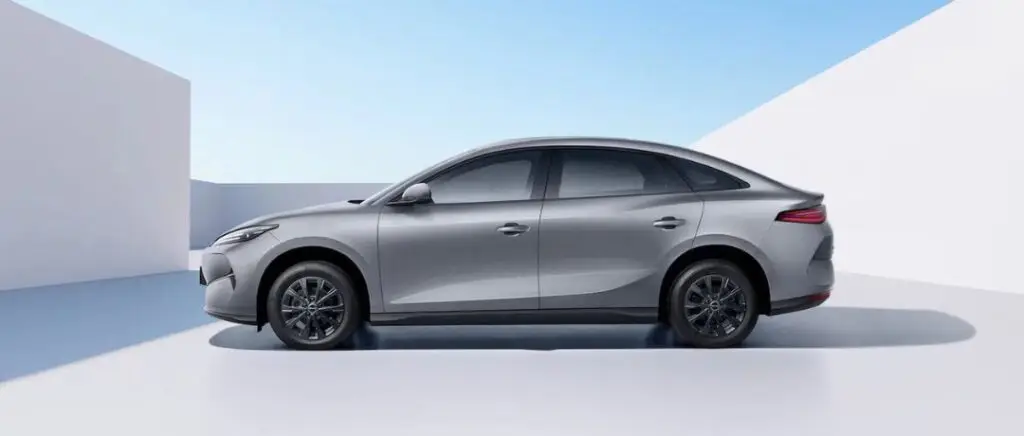Why invest in a charging station?
Most self-employed professionals are nomadic, and have to deal with the cost of travel (mileage expenses) as well as the time spent traveling. Whether you're an architect working on several sites, a nurse making house calls or a plumber specializing in urgent repairs, you have to deal with the many constraints inherent in mobility. In this context, being able to rely on your electric vehicle is essential. It must providesufficientautonomy to avoid any interruption of activity that could be detrimental to both your customers and your schedule. The choice of recharging method is therefore central.
Cover a wide range of trips
Some liberal professions are built entirely around mobility. Self-employed nurses, for example, visit an average of 35 patients a day. To guarantee efficiency and productivity, it's essential to organize rounds as efficiently as possible.
One way of reducing the number of kilometers driven and the frequency of recharging is to establish zoning. This makes it possible to rationalize travel by limiting the number of trips to a particular area, depending on visiting hours. But it's not always easy to implement, depending on the specifics of the patient base, priorities linked to the very nature of the care and, of course, unforeseen circumstances.
In urban areas with good public transport links, it's easier to reduce car travel times by relying on other modes of transport. This is not the case in isolated rural areas, where self-employed professionals can only rely on their vehicles, and are often required to travel more than a hundred kilometers a day.
Save time
So it's easy to understand the importance of acquiring a recharging infrastructure. For you, it's inconceivable to waste time looking for a public charging station, or to modify your itinerary to the detriment of your customers or patients. Recharging your vehicle at work or at home, whenever you want and without constraints, is essential to optimize your productivity and offer the best quality of service to your customers/patients.
Liberal professions: two alternatives for installing a recharging point
As a self-employed professional, you can choose to install an electric vehicle charging station at your workplace (office, practice) or at home. Each solution has its advantages and disadvantages.
Installation of an IRVE (Infrastructure de Recharge pour Véhicule Électrique) at your workplace
This solution makes sense if you receive your customers or patients at your practice or offices. However, you'll need a parking lot or parking area. Not only will you have permanent access to a dedicated charging station for your professional electric vehicle, but you'll also be able to monetize your equipment when you're not using it. By making your charging station accessible to the public (visitors, patients or customers, employees), you'll be able to charge for recharging or offer it free of charge, depending on your objectives.
However, opening your charging station to the public brings with it management (supervision) and billing constraints.
Installing a home charging station
To date, government grants for self-employed professionals planning to install a recharging point at their home have not been renewed. However, there's nothing to stop you from installing a charging station as a private individual, which will enable you to obtain grants to finance your project. In particular, you'll benefit from :
- from reduced VAT rate of 5.5% (instead of 20%) for work to improve a home's energy performance (article 278-0 bis A of the French General Tax Code). Since 2023, this reduction has been granted irrespective of the year in which the home was built.
- from tax credits for the installation of charging stations The tax credit amounts to 75% of the cost, with a ceiling of €500 (excl. VAT) per unit. It is limited to the installation of a single charging point per dwelling for a single person, or two charging points for a couple. The tax credit is available to anyone domiciled in France for tax purposes, whether owner, tenant or free occupant.
Good to know: if you live in a condominium, the right to a plug (i.e. the right to install a charging point at your own expense) is not subject to a vote at the General Meeting. However, the request must be notified by letter to the syndic 3 months before the planned date of work. The latter cannot refuse to grant a co-owner's right to a charging point, unless there is a technical obstacle making it impossible to deploy the charging point, or a collective charging solution is already in place or planned. What's more, in a collective parking lot, you need to make sure that the electrical power is sufficient to cover the installation of a charging point.
Putting a price tag on your project
Whether you decide to install a charging station at home as an individual or at your workplace as a self-employed professional, you need to take the time toestimate your project. This means choosing the right equipment. An oversized charging station will generate unnecessary costs and pay for itself less quickly. On the other hand, incomplete equipment will require upgrading at a later date.
To define the scope of your needs, you need to think about your expectations and the future use of your charging infrastructure. Start by asking yourself the right questions:
- What is my average commuting time?
- How many kilometers do I have to cover every day?
- Is my business continuous or discontinuous?
- Will I have time to recharge my vehicle during my working day? If so, how much time can I devote to recharging?
- Are there free charging stations on my regular routes?
- Is the electrical installation in my home/office up to date/standard?
- Will I have the time to manage the recharging myself?
You also need to consider your environment. You won't choose the same charging station if your place of work is mainly in the city center, or if you frequently travel to suburban or rural areas.
Depending on the answers you get, you'll have a clearer idea of the type of bollard best suited to your needs. Selection criteria vary from model to model. In particular, you need to pay close attention to the equipment's power rating, estimated recharge time and options such as access management and energy billing.
The first part of the quote: the charging station
Which wattage to choose?
We're looking here at wall-mounted charging stations, excluding reinforced sockets which aren't really suited to charging professional electric vehicles intended for long and/or frequent journeys, as well as to monetization in the context of a publicly accessible station.
Charging stations are available in different power ratings: 7.4 kW, 11 kW and 22 kW. Beyond that, they are referred to as "fast recharging". These are mainly public network charging points (totems) with power ratings of up to 350 kW.
For what kind of autonomy?
Selecting the right wattage is essential, as it determines the charging time based on the desired range.
For example, an 11 kW charging station will give you a range of 60 to 75 km for an hour's charge (depending on the model of electric vehicle). But you also need to take into account the vehicle's charging capacity. If the vehicle is equipped with a 7.4 kW battery, the charging speed will be limited and will not exceed that of a 7.4 kW terminal, even if the installed terminal has a higher power rating.
Autonomy can be doubled for a 22 kW terminal (around 150 km obtained for an hour's charge).
To find out which bollard wattage is right for your needs, you must first determine therange you need. Here's a practical example for a self-employed doctor, who only visits his patients and travels an average of 80 km a day. This professional travels from Monday to Saturday, covering an average weekly distance of 480 km. By opting for a 7.4 kW terminal, he will regain the necessary autonomy by recharging for two hours a day. This is more than enough power to cover his needs.
Average price: between €700 ex-VAT and €900 ex-VAT for a 7.4 kW terminal, depending on model and brand.
Second part of the quote: terminal installation
Contrary to popular belief, the charging station itself is not necessarily the most important item of expenditure when deploying a charging infrastructure. You also need to take into account the installation costs. This depends on a number of factors, principally :
- any work required to comply with electrical standards: the installation of a charging station must comply fully with the NF 15-100 standard. If your electrical system is obsolete, or if the earthing system is faulty (missing or with a resistance greater than 100 Ohms), the electrician will have to make the necessary modifications, which will entail additional costs.
- the distance between the bollard and the switchboard: a long distance may require extensive civil engineering work (this is rarely the case for a bollard installed in a garage).
Average price: between €800 and €1,500 excluding VAT.
Did you know? To install a charging station with a power rating of over 3.7 kW, you need to call on the services of a IRVE-certified electriciancertified electrician qualified to install charging stations for electric vehicles.
Our Beev experts will propose an offer tailored to your needs and projects.
Apply now!
Third part of the quote: options and associated services
If you plan to open your charging station to the public and charge for recharging to certain categories of visitors (customers or patients), you'll need to opt for a charging station equipped with a communication system (RFID) that will enable you to control it remotely. This option will not be necessary for a charging station installed at home and dedicated to your own use.
And don't forget to include the maintenance contract, which includes an annual inspection and troubleshooting in the event of a malfunction.
Price: around €250 per year for the supervision tool and the same amount for the maintenance contract.
Beev: from decision support to quotation
Are you lost between the different offers on the market? You don't know which charging station to choose and how to find an approved IRVE installer? Beev offers you a 100% free turnkey service to find and install your charging station. All it takes is a few simple steps to make your project a reality. We're with you every step of the way, guaranteeing you the best prices and the best quality, thanks to :
- dedicated assistance to help you select the right terminal for your needs and objectives ;
- Put you in touch with an approved IRVE installer near you and make an appointment;
- preparing applications for government grants and subsidies (where applicable);
- a range of optional services, such as a billing tool (supervision) and maintenance contract.
Would you like a free, no-obligation quote to estimate the cost of your charging station installation project as a self-employed professional? Choose your equipment or make an appointment with one of our advisors for rapid home installation within 10 working days.
If you would like to find out more aboutaid for the installation of charging stations for businesses in 2024please consult our article on the subject.
































